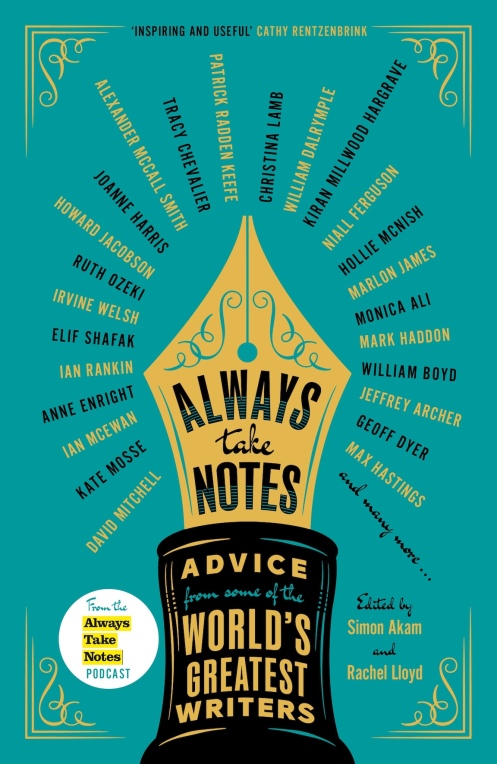I’ve always been fascinated by the way in which writers approach their task. In fact interviewers often ask writers the question: are you a plotter or a pantser? Or perhaps, more politely, are you a plotter or a plunger in an effort to stream them into one or the other.
The plotter may go so far has to have a spreadsheet of chapters neatly plotted out. Such a method suggests a tidy mind determined to harness the story before it’s committed to the page.
The plunger may simply start writing with a single idea in their mind, (just as I started writing this blogpost with a vague idea of what I wanted to write about.) Although that’s not entirely true.
I’m addicted to podcasts and books that investigate the writing life of authors. My current read – Always Take Notes – is based on interviews from my favourite podcast of all time, Always Take Notes, hosted by Simon Akam and Rachel Lloyd. (I’ve listened to 179 of their podcasts – all of them in fact.)
The hosts of the podcast regularly ask their guests: are you a plotter or a plunger?
My own experience of writing comes closest to Alexander McCall Smith, who responded to the question in this way:
I stand in admiration of people who have closely worked-out plots and people who have the Post-it notes. I’m most impressed with that, but I tend not to do it. I have a very general idea of what the main feature of the book will be … there may be all sorts of subplots, many of which I haven’t anticipated before I start the novel. I think that fiction comes to a very great extent from the subconscious mind. … (p.43, Always Take Notes, Simon Akam and Rachel Lloyd, editors)
For me, the Post-it Notes come during the writing process. A new character? Grab a Post-it Note. A thought bubble? Grab a Post-it Note. At the end of the process, assemble said Post-it Notes and random scraps of paper and put them together in a cohesive manner, especially because my books are series. I need to remember who’s who. Personally I like books with continuing characters which I guess is why I write books in series.
For anyone interested in the writing process, I thoroughly recommend Always Take Notes. There are many well-known names among the interviewees. And the interviews are very revealing.
Ian McEwan describes himself as ‘a stumbler’. The other Ian – Ian Rankin – developed the idea for his famous Scottish detective John Rebus while staring at a gas fire in his student digs.
If you are hungry for advice and insight into the way other authors have achieved their ambitions, I’d certainly recommend the book and the podcast.

PS If you are interested in reading previews of my books, links have recently been added to my website – enjoy the free reading.